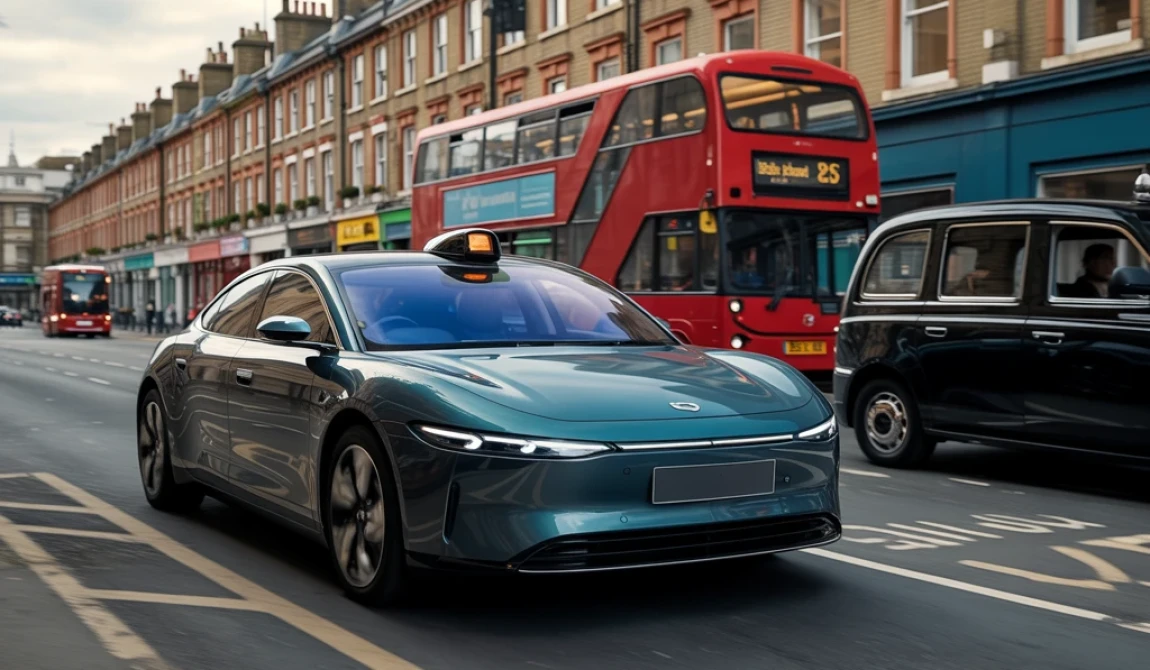Driverless cars feel like something from the future. However, with this technology developing at a lightning-fast rate, they could be closer to real life than you might think. While fully autonomous cars aren’t yet on sale, many cars do come with a level of autonomous assistance that can make everyday driving easier, and you’ll find some of them here at Prestige Cars Kent, too.
But are driverless cars coming to the UK? At what point could we see them on our roads, and how is the technology progressing? We’re going to be finding everything out in this feature.
Most recent developments
One of the most recent developments in the world of driverless cars came in June 2025. A Government release has stated that ‘self-driving vehicle pilots are set to start in England from spring 2026’. As a result, companies will be able to use ‘taxi- and bus-like’ services without the need for a driver for the first time.
Heidi Alexander, transport secretary, said: “The future of transport is arriving. Self-driving cars could bring jobs, investment, and the opportunity for the UK to be among the world leaders in new technology. “With road safety at the heart of our policies and legislation, we continue to take bold steps to create jobs, back British industry, and drive innovation to deliver our Plan for Change.”
Automated Vehicles Act
One of the biggest turning points in the world of self-driving cars could come via the Automated Vehicles Act. Slated for introduction in 2027, the Automated Vehicles Act provides a framework for the successful roll-out of driverless vehicles in the UK while establishing set guidelines and rules around their safe use.
Automated Vehicles will need to achieve a level of safety the same or higher than that of ‘careful and competent human drivers’. Essentially, they won’t be allowed on the roads unless they can travel safely. The Automated Vehicles Act is made up of many sections, as there needs to be a rigorous set of rules in place to define how and when self-driving cars can be used and who may be at fault in the event of an incident.
Public consultation
To help gauge public opinion of driverless cars, a nationwide consultation has been launched to work out how automated cars should operate on our roads. With the first taxi-, private-hire- and bus-like self-driving services predicted to be on the roads from spring 2026, this process will be used to ‘shape key laws’ regarding these new vehicles.
Lilian Greenwood, future of roads minister, said: “Self-driving vehicles are one of the most exciting opportunities to improve transport for so many people, especially those in rural areas or unable to drive. We want to work with passengers and industry to make this new form of transport safe and accessible, as we take our next steps towards adoption.”
Key areas of consultation will include how self-driving cars can be made more accessible for disabled and older people and how the services of self-driving cars will be approved by councils.
What about private self-driving cars?
While these developments could see driverless cars on our roads within the year, they’re likely to be operated by hire firms akin to taxi companies. It’s a process that we’ve seen used by companies such as Waymo in the United States, which operates self-driving taxis in parts of the country.
Until the Automated Vehicles Act is fully implemented, driverless cars won’t be able to operate on the UK’s roads. However, it’s predicted that semi-autonomous functions in cars - such as lane keep assistance and remote parking - could continue to evolve and become more complex.

